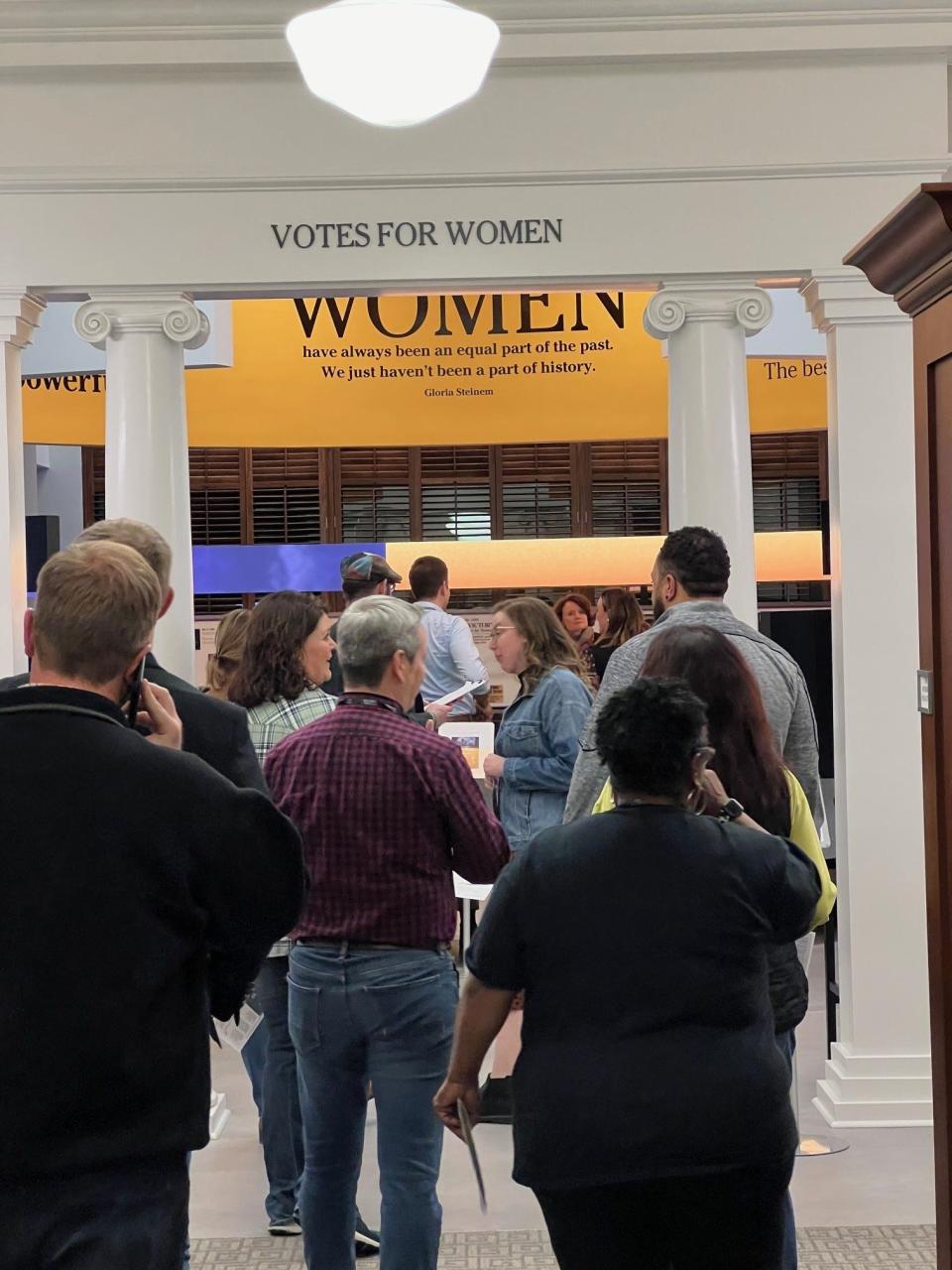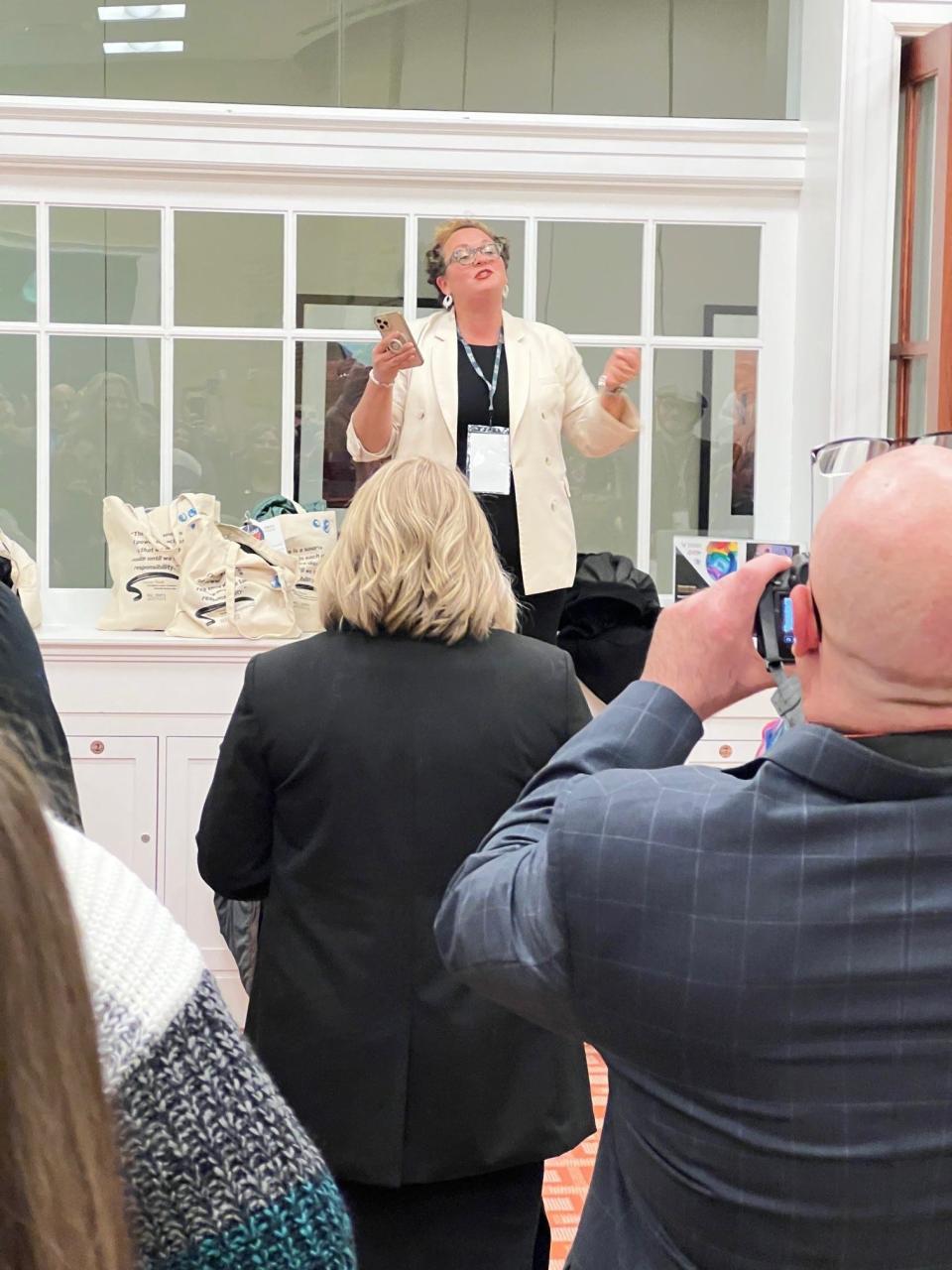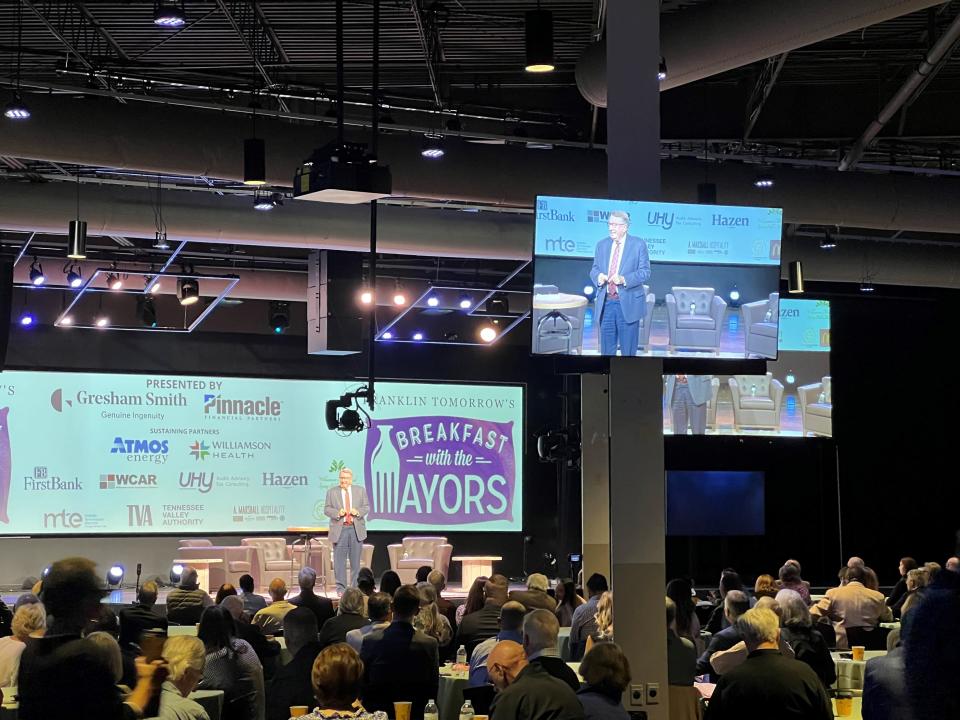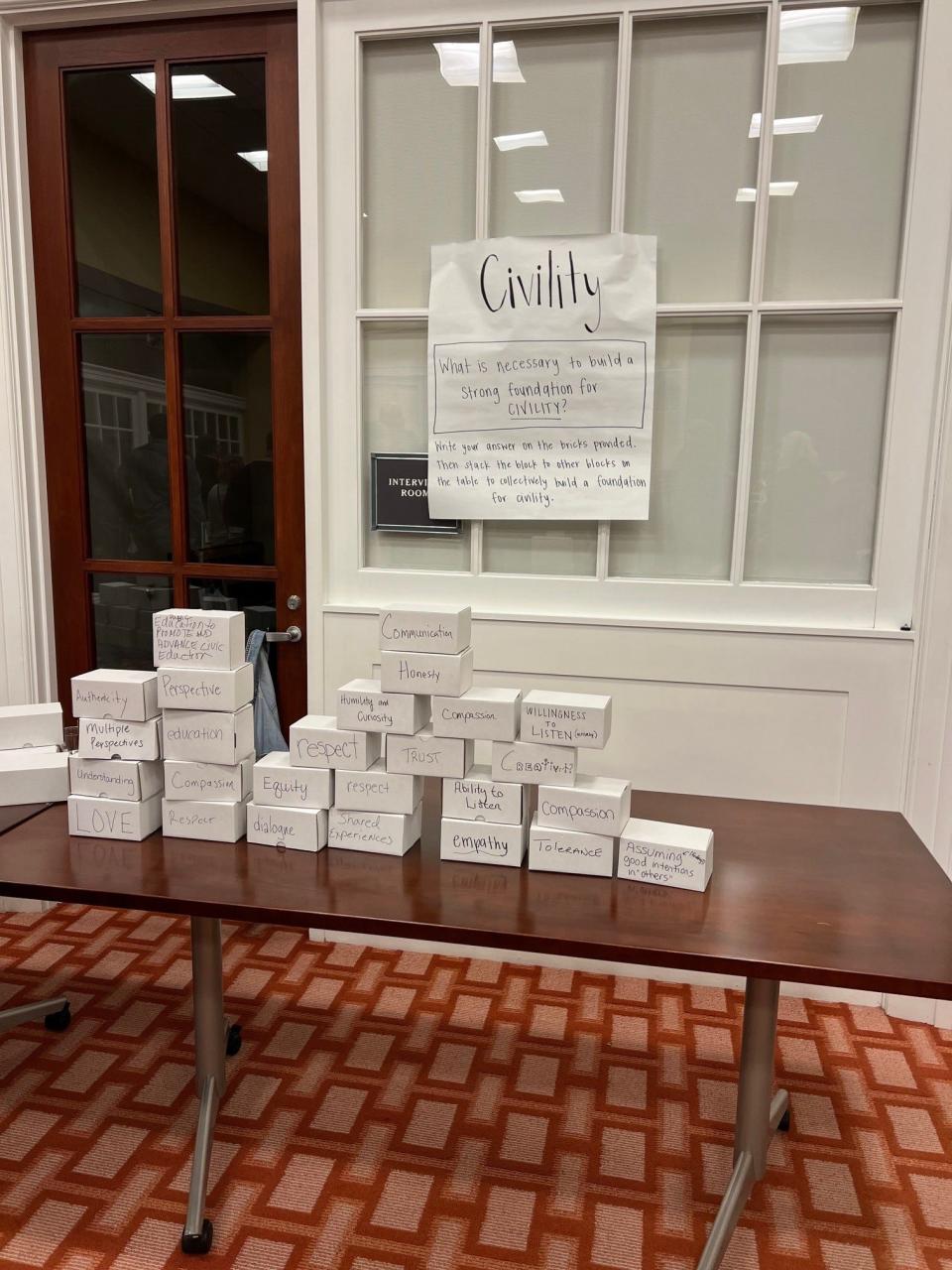Americans will lose the republic if they 'check out' on democracy; civility is a solution
Editor’s note: This is an edited and abridged version of a speech delivered by The Tennessean Opinion and Engagement Director David Plazas on Nov. 29. The event was organized by the Bill of Rights Institute and consisted of members of the Council of State Social Studies Specialists, which held its annual conference in Nashville Dec. 1-3. The group toured the Nashville Public Library Civil Rights and Votes for Women rooms before heading to The Standard at The Smith House restaurant in downtown for dinner and the speech. The focus of the evening was “Civics and Civility,” and Plazas was invited because of The Tennessean’s Civility Tennessee campaign, which launched in 2017.
Recently, I finished listening to the latest episode of one of my favorite podcasts “You Might Be Right.”
The show is hosted by former Tennessee governors Phil Bredesen, a Democrat, and Bill Haslam, a Republican, where they talk to newsmakers and thinkers about the issues of the day and also examine the times when they weren’t always right and the times that they learned something new.
It’s inspired by the wisdom of former Sen. Howard Baker, a Republican of East Tennessee, who died in 2014.
He famously said, “The other fellow might be right” and he’s a name who has been evoked very much lately by a series of figures from Haslam and Bredesen to the late Gov. Don Sundquist, whose last guest essay published posthumously in The Tennessean a few weeks ago.
Sundquist wrote: “A dysfunctional American democracy is the most dangerous thing in an increasingly dangerous world. We can do better. We have done better. We simply must do better if we are to make the 21st century another American century.”
About Kidizenship: How Nashville youth showed city leaders that Gen Z is setting the future for the nation
We should not run from the big problems that affect America
Returning to the “You Might Be Right” podcast, the guest for this particular episode was Carly Fiorina. You may remember that she was the former Fortune 50 tech company CEO and a presidential candidate in 2016.

Her conversation with the former governors was a powerful examination of character in our public leadership and why it matters so much.
But what struck me the most was something she said at the very end. She insisted that if Americans are going to save the republic, they cannot abandon their duty as citizens.
She said: “The thing that worries me the most is too many people are becoming passive and deciding there’s nothing they can do. The problems are too big, they’re too entrenched … And the worst thing for our democracy is for people to just check out, and way too many people who have checked out. And if you go all the way to the beginning of our nation when the problems were huge and the risks were large, people didn’t check out.”
She urged listeners to do something even on a small scale in their neighborhoods.
We can’t check out of democracy if we’re going to be good citizens.
Civics education series: States' rights vs. the Supremacy Clause: Here's what the Constitution says about them
Here is why the term civility is problematic and essential
I tell you all this because for the last six years, I have led a campaign by The Tennessean called Civility Tennessee.

The purpose is to promote, encourage and model civil discourse, respectful dialogue and enhance debate in our communities.
Given the state of national politics, you might think this has been a colossal failure, but my work is at the local and state level and I can tell you there are numerous successes of bringing people together in conversation and in local and statewide forums to solve problems, small and large.
And sometimes the successes are built upon being present even at times when it’s uncomfortable.
A few weeks ago, I was sitting at a table in a room with more than 120 people who were talking about healing and grieving after the Oct. 7 attack by Hamas against Israel.
The event was organized by Millions of Conversations, founded by Samar Ali who also co-chairs Vanderbilt’s Project on Unity and American Democracy.
At my table, I was one of five people that included Jewish and Muslim residents, who talked about wanting to maintain the bridges of friendship built over many, many years, acknowledging how difficult it is.
It continues to be difficult, but being present was important. And as an opinion journalist, I have tried to play a part by welcoming and inviting voices offering different perspectives on the war on our digital and print platforms.
Hear more Tennessee Voices: Get the weekly opinion newsletter for insightful and thought provoking columns.
Sometimes conflict is at the very heart of solving problems
A few weeks ago, former Lipscomb University President Randy Lowry addressed the quarterly Breakfast with Mayors event by Franklin Tomorrow, a civic group, and declared that peace is not the absence of conflict.

He offered four points for navigating conflict:
Can we lead with deep respect for each other?
Can we nurture firm centers and soft edges?
Can we seek interest-based collaboration over position-based fights?
Can we be thinking not just of ourselves but our children and grandchildren?
And this all gets me back to term civility. It’s a word, admittedly, that makes me uncomfortable sometimes, because civility gets conflated with being just polite or being a doormat.
Civility has been used as a cudgel to force oppressed people, contrarians and folks with disagreements with the status quo into silence.
People have been told “Be civil” as a means to tell them to be quiet.
Protesters have been described by elected officials as a mob even though this country has a long history of advocacy, civil disobedience and opposition to injustice.

A fact that was emphasized by Carly Fiorina in her remarks on Governors Haslam and Bredesen’s podcast was that one of the best innovations in the U.S. Constitution is that our Founders made it possible to fix our mistakes through the amendment process.
The very fact that I am speaking to the Bill of Rights Institute makes that note even more poetic.
Civility comes from the word civitas, which is Latin for the role of the citizen. And the role of the citizen is to uphold, challenge and seek to better society. To solve the difficult problems that plague us especially when they are hard. In short, not to check out.
David Plazas is the director of opinion and engagement for the USA TODAY Network Tennessee. He is an editorial board member of The Tennessean. He hosts the Tennessee Voices videocast and curates the Tennessee Voices and Latino Tennessee Voices newsletters.. Call him at (615) 259-8063, email him at [email protected] or find him on X, formerly known as Twitter, at @davidplazas.
This article originally appeared on Nashville Tennessean: Civility in America: Citizens can't 'check out' on democratic process